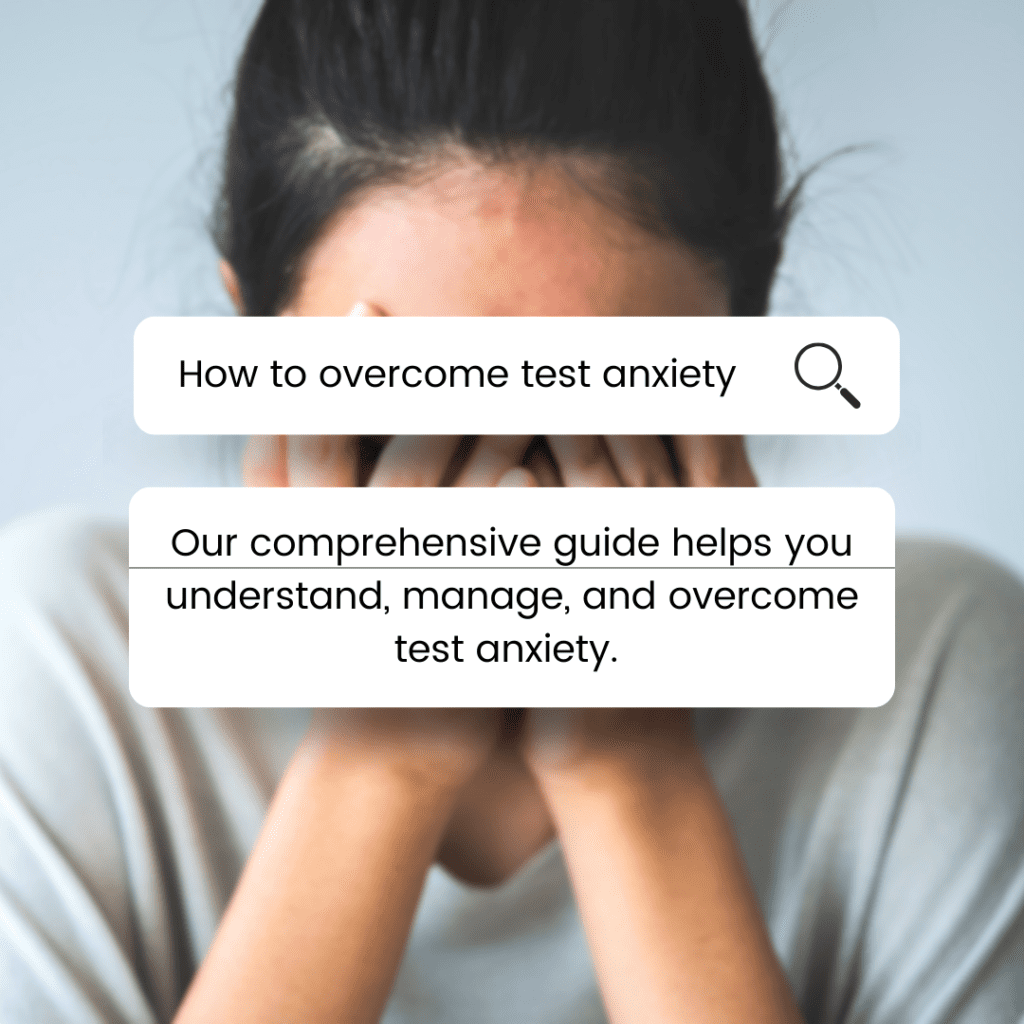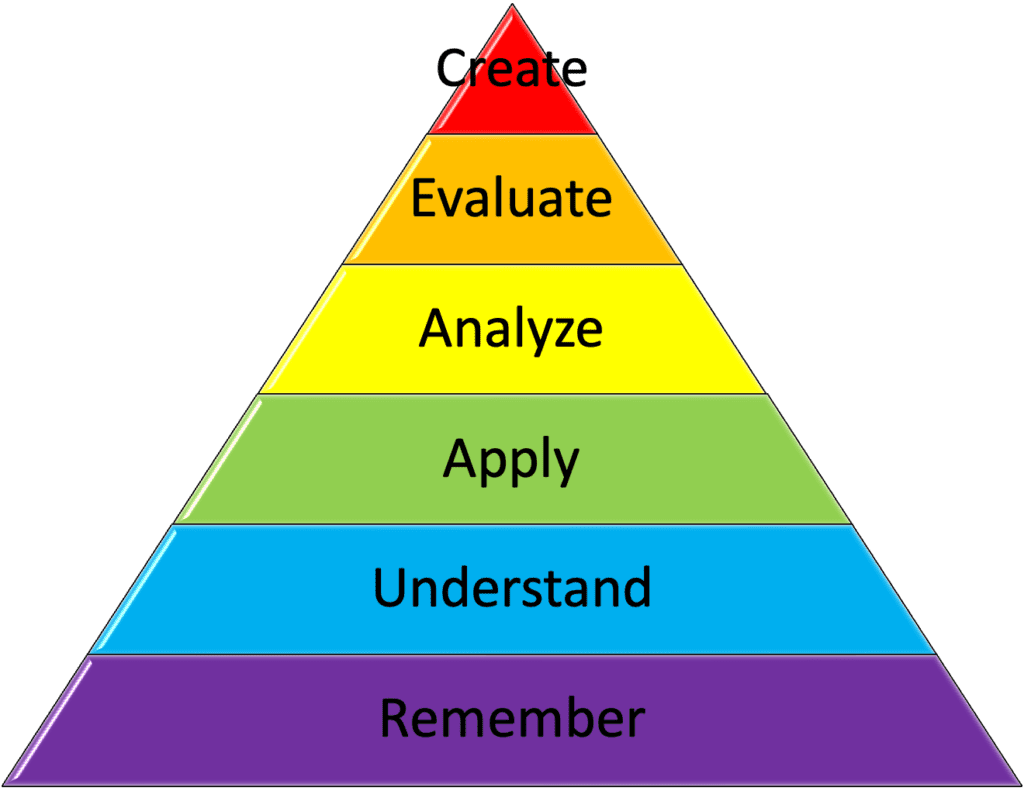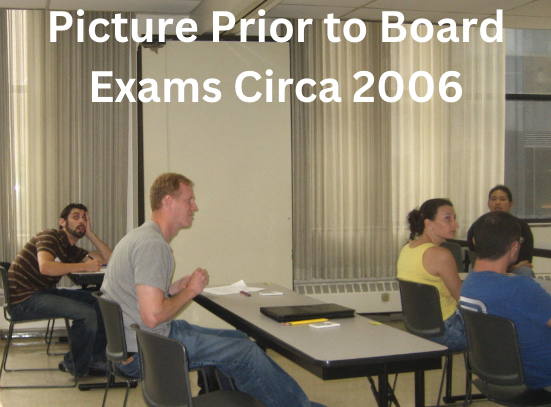Authored by Dr. Leland Jaffe; Associate Dean and Professor; Published on January 26, 2024
Experiencing test anxiety is common, and many students grapple with it at some point along their academic journey. Whether it’s a minor quiz or a high-stakes exam, the pressure to perform can trigger stress and anxiety. In this blog post, we’ll explore the various causes of test anxiety and provide practical strategies to address and overcome this challenge.
Causes of Test Anxiety:
1. Fear of Failure:
One of the primary causes of test anxiety is the fear of failure. Students often link their self-worth to academic success, leading to heightened stress levels when facing an exam. Overcoming this fear involves changing the mindset from viewing exams as judgments to perceiving them as opportunities for growth and learning. One of my daughter’s teachers called exams a “celebration of knowledge”, and I think this is a great way to view them.
2. Poor Preparation:
Inadequate preparation and last minute studying can breed anxiety. Procrastination, lack of preparation, and insufficient understanding of the material contribute to feeling unprepared and poor test performance. Establishing effective study habits, breaking down topics into manageable sections, and maintaining a consistent study schedule can help alleviate this cause of exam anxiety. Remember that it’s not just about the quantity of studying, but the quality that has the most positive effect on test performance. It’s important to develop good study skills early on in your academic career, as poor study habits can linger from high school to college students, and finally graduate school.
3. Perfectionism:
The desire for perfection can become a significant source of anxiety, and I have fallen victim to this in the past as well. Students who set unrealistically high expectations for themselves may feel overwhelmed and stressed when they perceive they’re falling short. Embracing a growth mindset, where mistakes are seen as learning opportunities, can help mitigate the impact of perfectionism.
4. Negative Self-Talk:
The way students talk to themselves leading up to and during an exam can significantly affect their stress level and lead to poor performance. Negative self-talk, such as self-doubt or catastrophic thinking, can be detrimental. It can also significantly impact test performance by undermining confidence and creating a self-fulfilling prophecy of failure. When individuals engage in self-doubt or harbor pessimistic thoughts about their abilities, it can trigger anxiety, hinder concentration, and diminish problem-solving skills. This detrimental inner dialogue not only erodes self-esteem but also interferes with the cognitive processes essential for effective test-taking, ultimately influencing performance outcomes. Encouraging positive affirmations, adopting a confident posture, and reframing negative thoughts can contribute to a more positive mindset for test takers.
5. Pressure from External Factors:
External pressures, such as parental expectations, societal standards, or competition with peers, can intensify test anxiety, especially for medical students when the stakes are so high. It’s necessary for students to communicate openly with their support network, set realistic expectations for themselves, and focus on their personal growth rather than external benchmarks.
Strategies to Address Test Anxiety:
1. Effective Time Management:
Proper preparation for an exam plays a pivotal role in alleviating anxiety by instilling a sense of confidence and control. When you invest time in creating a well-structured study plan, breaking down complex topics into manageable segments, and consistently reviewing material, you enhance your understanding and retention for upcoming tests. This proactive approach not only fosters a deeper grasp of the subject matter but also diminishes the fear of the unknown. As you become more familiar with the material, your confidence, and ultimately test scores will increase. Proper preparation empowers you to face exams with greater assurance, significantly reducing the stress and anxiety associated with academic assessments.
2. Mindfulness and Relaxation Techniques to Manage Test Anxiety:
Incorporate mindfulness and relaxation techniques into your study routine. Make sure to carve time in your busy schedule to do activities that bring you relaxation, whether it be exercise, reading, or other hobbies that bring you joy.
3. Healthy Lifestyle Choices:
Prioritize a healthy lifestyle with regular exercise, a good night’s sleep, and a balanced diet. Physical well-being can go a long way to supporting mental health and can contribute to stress reduction.
4. Seek Support for Test Anxiety :
Reach out to friends, family, or teachers/faculty for support. Discussing your concerns and seeking guidance can provide valuable perspectives and alleviate the sense of isolation that often accompanies test anxiety. Far too often students will suffer silently without bringing these concerns to their faculty members. I understand that some students have a hard time discussing mental health issues, but students please remember that your teachers are here to support you and are a great resource to help.
5. Test-Taking Strategies:
Learn and practice effective test-taking strategies, such as time management, skimming questions before answering, and focusing on one question at a time. Familiarity with these strategies can boost confidence during exams. Developing effective test-taking skills is essential for navigating exams with confidence. Practicing time management techniques, such as allocating specific time limits to each section, ensures that students can address all questions without feeling rushed. Additionally, honing critical thinking and problem-solving abilities can help students tackle complex questions with greater ease. Regularly simulating test conditions through practice tests not only familiarizes individuals with the format but also builds resilience, minimizing anxiety on the day of the exam.
The Night Before an Exam
The night before an exam, minimizing stress and anxiety is crucial for optimal performance. Start by reviewing key concepts rather than attempting to cram large amounts of information. Ensure all necessary materials, such as pens, identification, and notes, are organized and ready. Engage in a relaxing activity, whether it’s reading a calming book, exercising, or practicing mindfulness, to promote a restful night’s sleep. Avoid stimulants like energy drinks, limit caffeine, and focus on a light, nourishing dinner. Lastly, set aside time for a good night’s sleep, allowing the mind to consolidate information and wake up refreshed for the upcoming exam. A lack of sleep can significantly impair cognitive function, retention of information, and concentration, ultimately contributing to poor test performance due to diminished mental clarity and reduced ability to recall learned material. These steps collectively contribute to a more composed and confident state of mind on exam day.
The Day of Exam – How to Manage Anxiety
On the day of the exam, developing good habits can significantly minimize anxiety. Start by waking up early to allow ample time for preparation and to avoid feeling rushed, especially if you commute to school. Have a balanced breakfast to fuel your brain, and reiterate positive affirmations to boost confidence. Arrive at the exam with extra time to spare, reducing the stress associated with potential delays. During the exam, take deep breaths to stay calm, read instructions carefully, and focus on one question at a time. Embracing these habits promotes a composed mindset, enhancing your ability to perform at your best during the assessment.
Test Anxiety – Conclusion:
Test anxiety is a common challenge, but it’s essential to recognize that it can be managed and overcome. By addressing the root causes and implementing practical strategies, students can approach exams with greater confidence, leading to improved academic performance and a more positive overall learning experience. Remember, tests are not just assessments of knowledge; they are opportunities for growth and development.
Comment below on strategies that you use to help manage test anxiety!







